
Losing your iPhone can be a stressful and frustrating experience. Scammers are often ready to exploit the anxiety of distraught iPhone owners searching for their lost devices. These unscrupulous individuals have developed various schemes to take advantage of the situation and make a quick profit. This context is crucial in understanding the concerns raised by Donald, who wrote to us regarding lost iPhone scams. Donald from Saginaw, Michigan, shared his experience:
“I lost an Apple iPhone 6 and found numerous online scams claiming they could locate it for just 89 cents. They promised to get back to me in three hours, but instead, I received a bill for $48.00 in yearly dues.”
In addition to the scam Donald encountered, there are also scammers who falsely claim to have found or purchased your lost or stolen phone and offer to delete your sensitive data for a small fee.
While you cannot control the loss of your iPhone, there are several proactive steps you can take to facilitate the recovery of your device or data. If your iPhone is lost for good, you can still take measures to protect your personal information.
GET SECURITY ALERTS, EXPERT TIPS – SIGN UP FOR KURT’S NEWSLETTER – THE CYBERGUY REPORT HERE
iPhone with security on the home screen (Kurt “CyberGuy” Knutsson)
Steps to protect yourself if your iPhone is lost or stolen
While various methods exist to locate a lost iPhone, many security features require access to another device or your iCloud.com account. Always ensure that location services are enabled and that you have set up “Find My iPhone” and other built-in security features on the iPhone as soon as you activate your phone. Taking these steps will maximize your ability to recover your iPhone should it get lost or stolen. Below are the steps you can take to protect yourself if your iPhone is lost or stolen.
1) Activate and use ‘Find My’ app
If you have the “Find My” set up on your iPhone, you can use another Apple device or log in to iCloud.com to locate your phone. Need a step-by-step guideline on how to use “Find My” to locate your iPhone? Check out how to find your lost iPhoneHOW TO SECURELY LOCK YOUR IPHONE AND IPAD FROM PRYING EYES
2) Play a sound
If you’ve enabled “Find My” for your iPhone, you can log onto iCloud.com or another Apple device and under your iPhone profile you can select “Play Sound.” If your iPhone is nearby, you can listen for the sound playing from your iPhone to help you locate it.
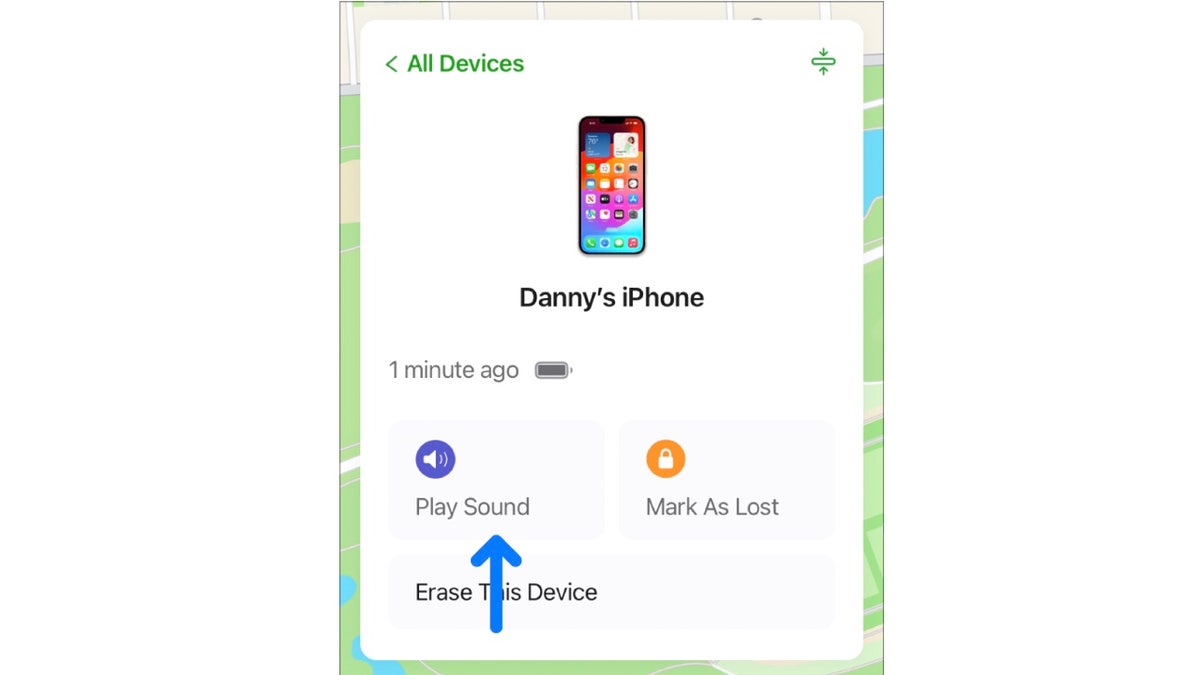
Play sound on iPhone (Apple) (Kurt “CyberGuy” Knutsson)
NEW CYBERATTACK TARGETS IPHONE AND APPLE IDS: HERE’S HOW TO STAY SAFE
3) Mark iPhone as lost
If you’ve enabled “Find My” for your iPhone, you can log onto iCloud.com or another Apple device to mark your iPhone as lost. When you select “Mark as lost” under your iPhone options, it will lock your phone and display a message with your contact information.
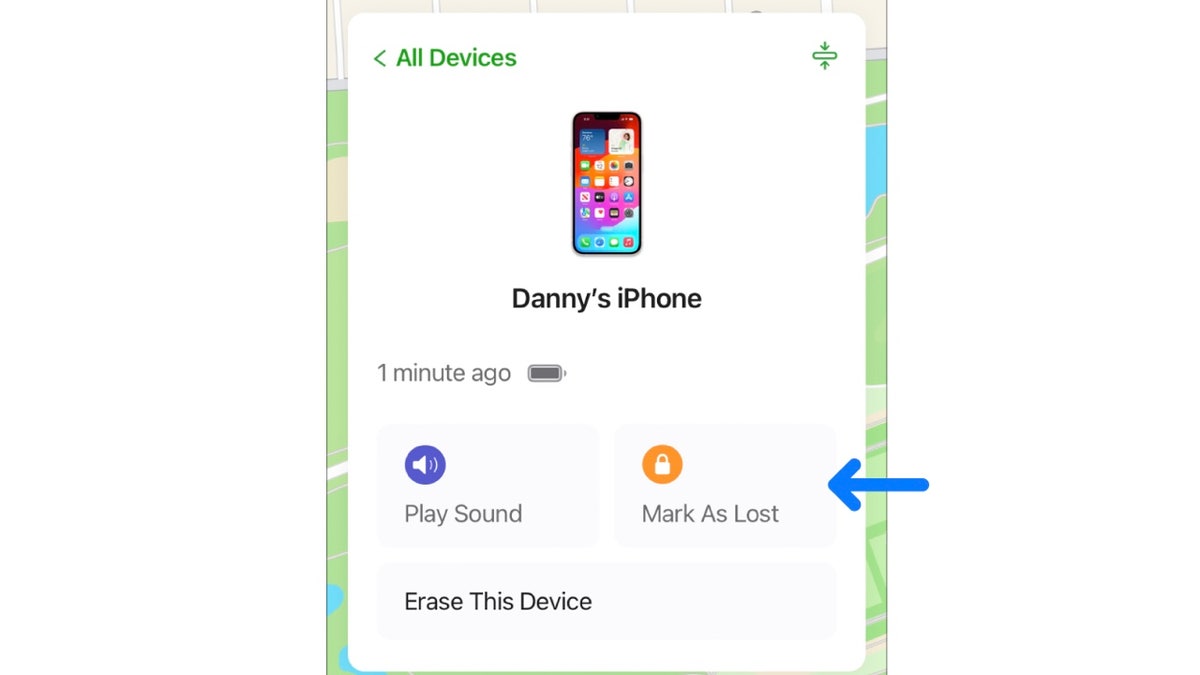
Mark As Lost on iPhone (Apple) (Kurt “CyberGuy” Knutsson)
HOW TO PROTECT YOUR IPHONE & IPAD FROM MALWARE
4) Turn on ‘Activation Lock’
When you turn on “Find My” for your iPhone, you automatically turn on “Activation Lock” for your device. As long as “Find My” is on your iPhone, even if someone finds your lost phone or steals it, “Activation lock” will ensure that no one can activate your iPhone without your Apple ID or passcode. This is true even if your data is wiped or phone is factory reset.
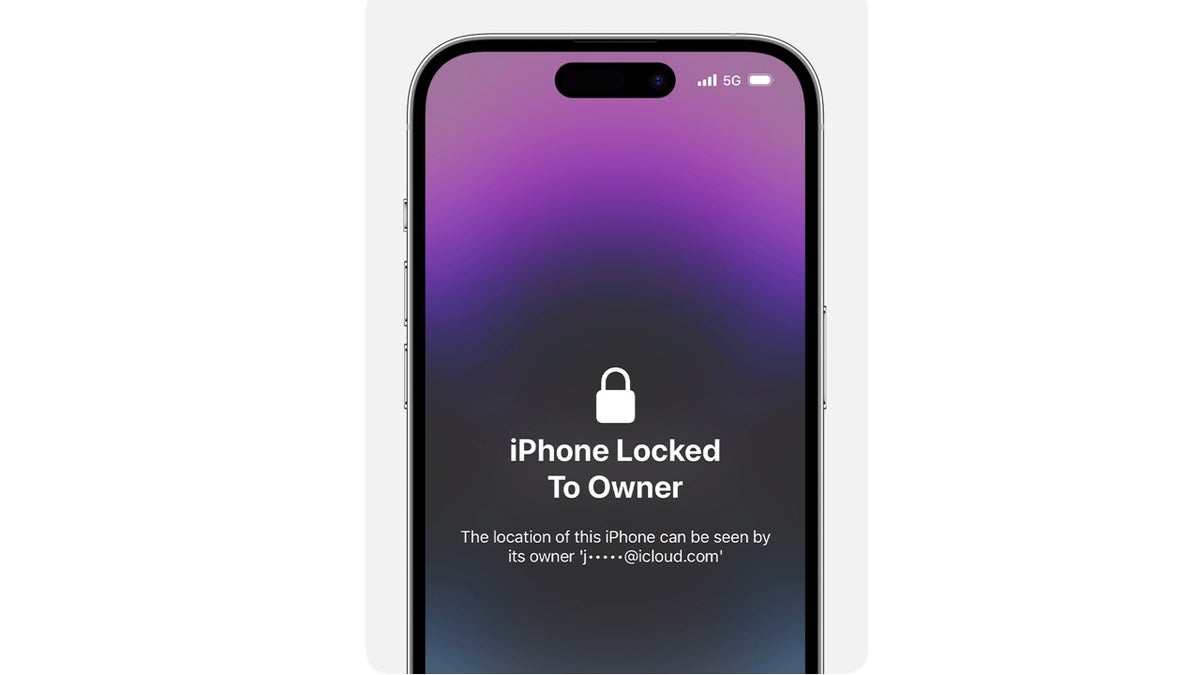
iPhone Locked To Owner (Apple) (Kurt “CyberGuy” Knutsson)
AVOID IPHONE PRIVACY DISASTERS WITH THESE 10 SMART TIPS
5) Set up ‘Stolen Device Protection’
“Stolen Device Protection” can give you an extra layer of protection. This feature gives you an additional layer of protection when your iPhone leaves a familiar location, such as work or home. If you have this feature on and your device is away from your familiar locations, it will require Face ID or Touch ID for biometric authentication to access sensitive features of your iPhone, such as passwords or credit card information. Additionally, it will activate a security delay so that outside of your familiar locations, there is an hour delay in taking security actions, such as changing your Apple ID password and then using Face ID or Touch ID authentication. Here are the steps to set up “Stolen Device Protection” on your iPhone.
- Go to the Settings app on your iPhone
- Tap on Face ID & Passcode (or Touch ID & Passcode for older models)
- Enter your iPhone’s passcode to access the settings
- Scroll down and find the Stolen Device Protection option. Tap on it and toggle it on
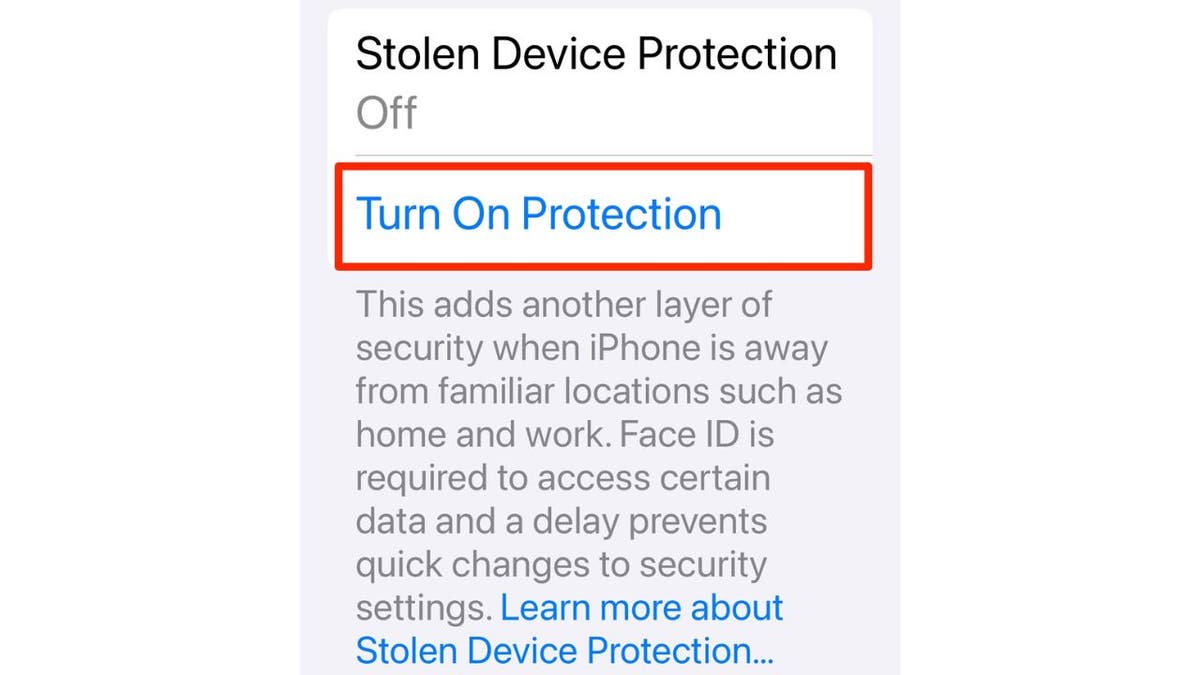
Stolen Device Protection on iPhone (Kurt “CyberGuy” Knutsson)
6) Check Google Maps timeline
If you’ve enabled location history on Google Maps app on your iPhone, you might be able to see the last known location of your iPhone by logging into Google Maps on your desktop or another device. You can retrace your steps and hopefully recover your iPhone. Here are the steps to check your Google Maps Timeline.
- On a desktop or another device, open the Google Maps website or app
- Log in with the Google account that is linked to your iPhone
- On the desktop, click on the menu icon (three horizontal lines) in the top-left corner
- Select Your timeline from the menu
- You will see a map with a timeline of your location history.
- Use the calendar feature to select the date your iPhone was lost
- Look for the last recorded location of your iPhone on the map
- Note the time and place to retrace your steps
- Visit the last known location to search for your iPhone
- If the location is a public place, ask around or check with lost and found services
7) Contact authorities
After attempting various methods of finding your lost iPhone or being contacted by or experiencing suspicious individuals or activities, you may come to the unfortunate realization that your iPhone is now stolen. Either way, you should report your lost or stolen iPhone to the local police station. If it is turned in or found, it gives you a greater chance of being reunited with your device. If it has been stolen, the police can help protect you from further issues.
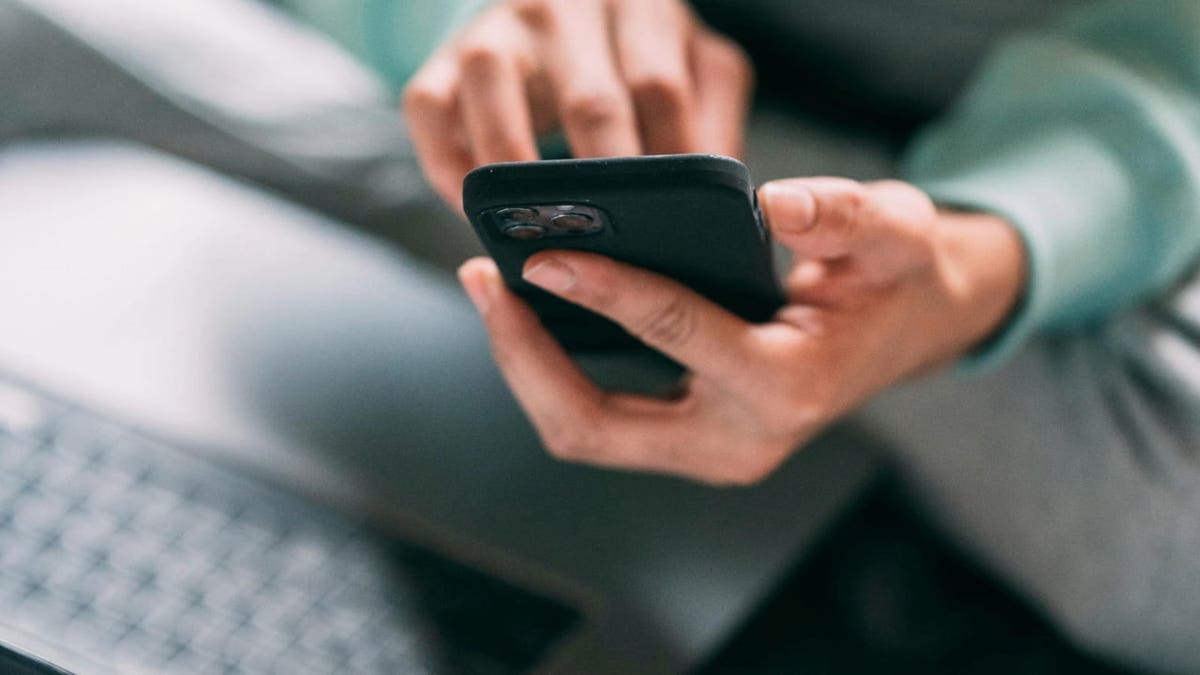
A woman on her iPhone (Kurt “CyberGuy” Knutsson)
8) Contact Carrier
Contact your carrier as soon as possible so that they can either help you locate your device or freeze access to your account, as well as limit the use of your device.
SUBSCRIBE TO KURT’S YOUTUBE CHANNEL FOR QUICK VIDEO TIPS ON HOW TO WORK ALL OF YOUR TECH DEVICES
Kurt’s key takeaways
An iPhone is an expensive investment that doesn’t just perform a utilitarian function. It also houses private personal information. That’s why losing your iPhone can induce panic and feel like a massive loss. Activating the security features built into most new iPhones, such as “Find My” and “Stolen Device Protection,” can go a long way in helping you either recover your iPhone or, at the very least, minimize the risk of your data falling into the wrong hands. If you find out that your iPhone has gotten into the hands of a thief or scammer, make sure to take the issue and any evidence directly to your local law enforcement and reach out to your carrier.
Do you have any of these built-in security features turned on? Have you ever lost or had your iPhone stolen? What did you do once you found out that your iPhone was lost or stolen? Let us know by writing us at Cyberguy.com/Contact.
For more of my tech tips and security alerts, subscribe to my free CyberGuy Report Newsletter by heading to Cyberguy.com/Newsletter.
Ask Kurt a question or let us know what stories you’d like us to cover.
Follow Kurt on his social channels:
Answers to the most asked CyberGuy questions:
New from Kurt:
Copyright 2024 CyberGuy.com. All rights reserved.





